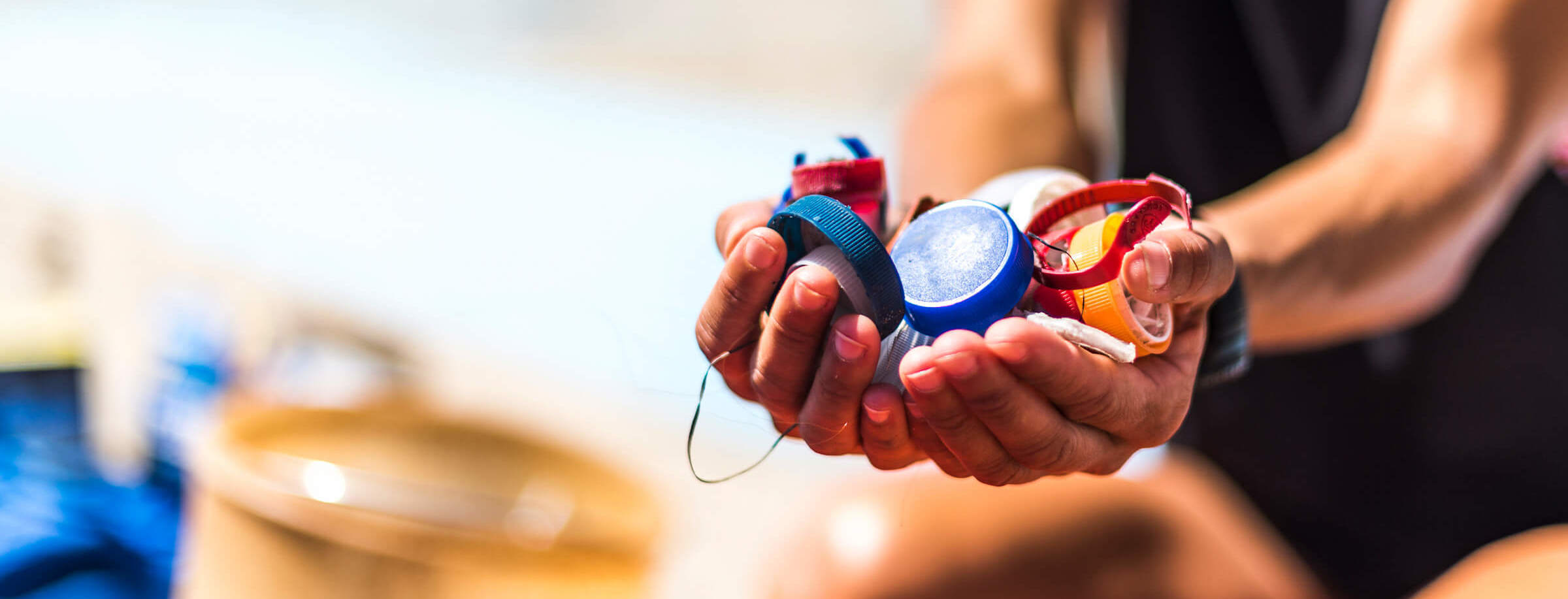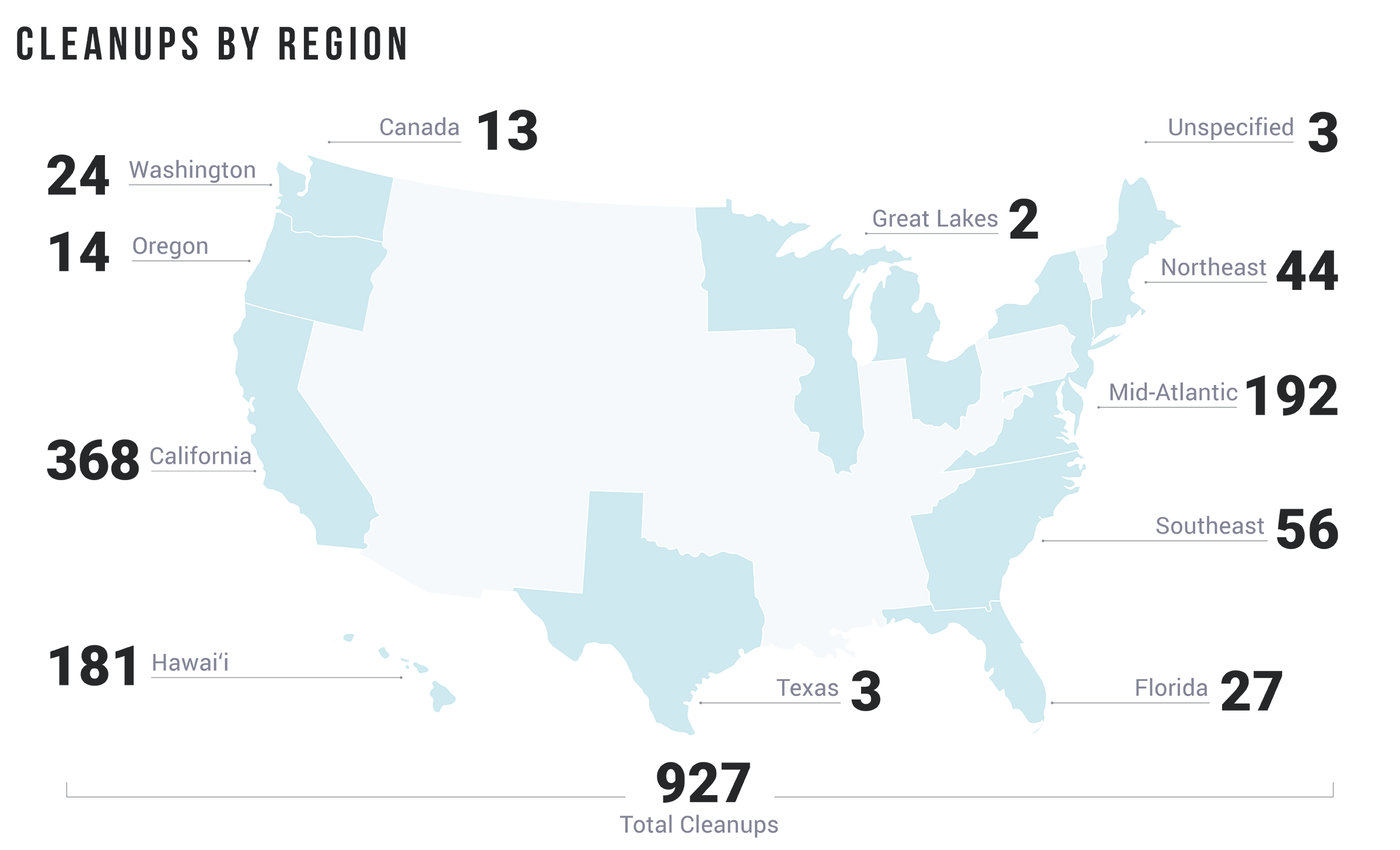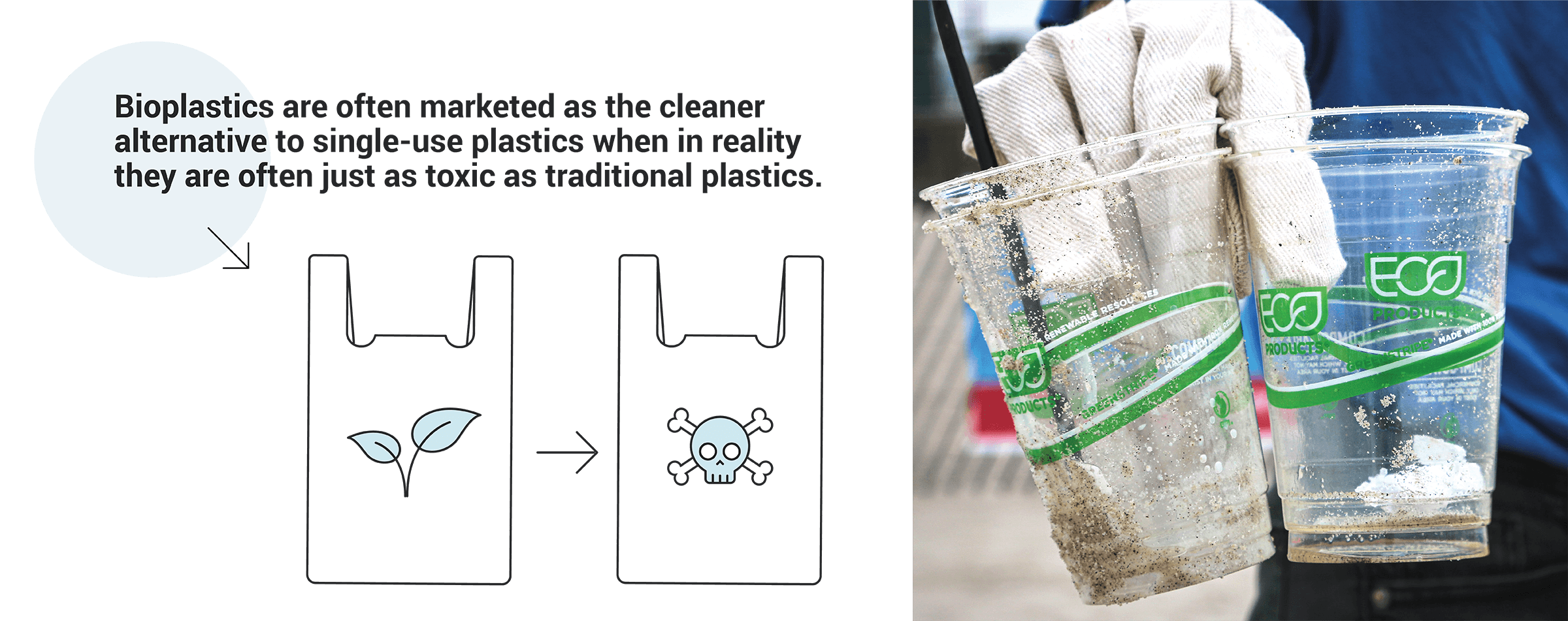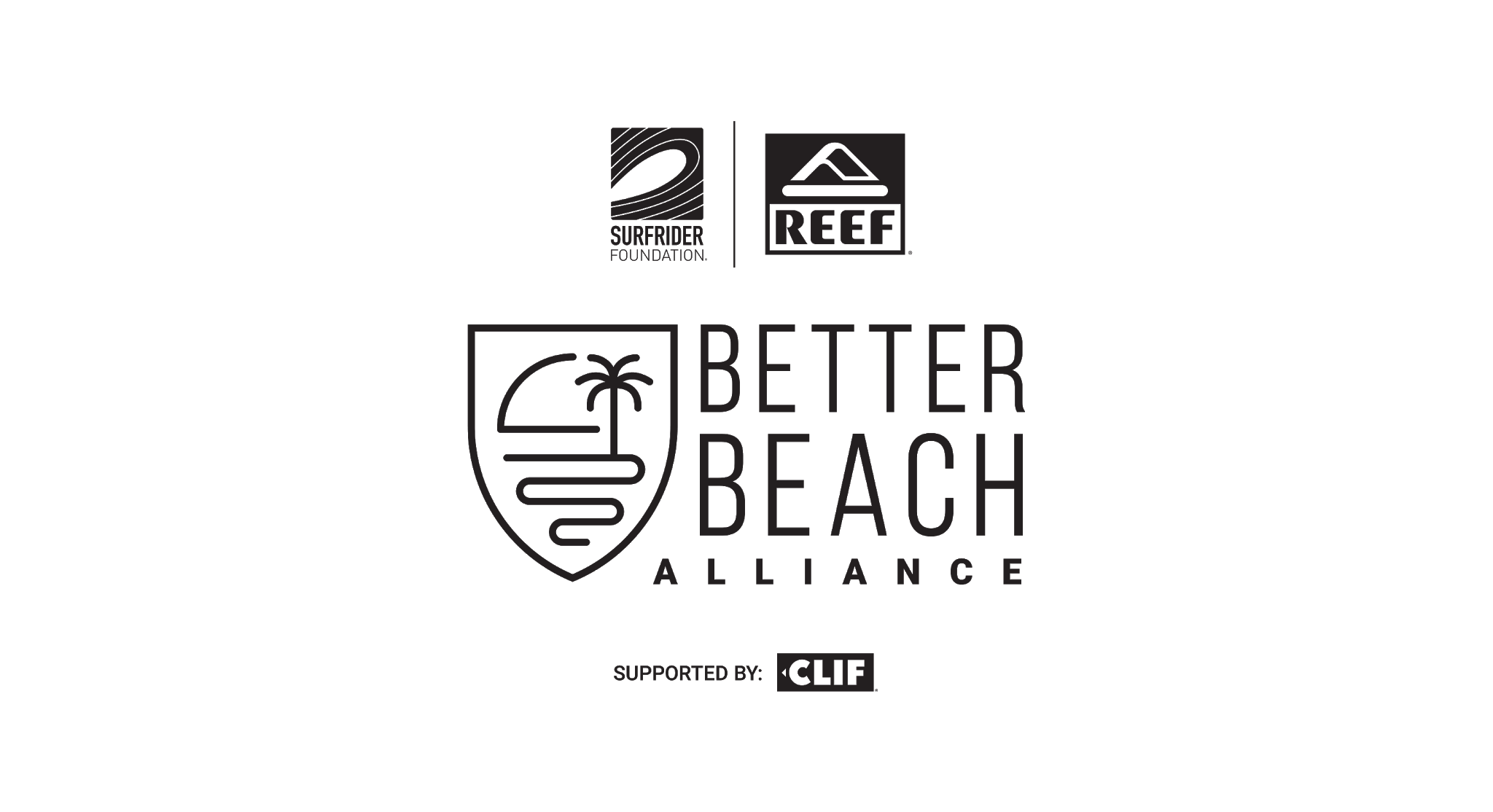
07.15.21
Surfrider's 2020 Beach Cleanup Report: Pandemic Pressure Inspires Innovation
By Jennifer HartThe Surfrider Foundation is pleased to release the 2020 Beach Cleanup Report. The second annual report highlights the impact of our national Beach Cleanup program during 2020 and presents regional stories, current science and how our network adapted to a challenging year.
Surfrider’s Plastic Pollution Initiative uses a multi-pronged approach and the Beach Cleanup program is the first step in reducing the amount of plastic ending up in our waterways, on our beaches and ultimately in the ocean. Beach cleanups play a critical role in addressing the plastic pollution crisis. They allow us to learn about the types of plastic that are found on our beaches and provide an entry point for people to learn more about the impacts of single-use plastics on our environment. Our volunteer chapter network conducts local beach cleanups across the nation and removes hundreds of thousands of pounds of trash and recyclables each year. By collecting data during cleanups, we can get detailed information about top littered items and use this data to influence policies at local, state and national levels.

The COVID-19 pandemic undoubtedly impacted nearly every aspect of our daily lives. For Surfrider’s Beach Cleanup program, the pandemic presented challenges to cleanup efforts, including beach closures, limits on gatherings, and the addition of new commonly found items. In response to this, protocols for solo cleanups were developed and Surfrider’s cleanup database was opened to the public. This allowed for greater diversity in cleanup locations and empowered individuals to report their findings. As a result of the adaptability and resilience shown during 2020, 8,895 Surfrider volunteers held 927 beach cleanups and removed over 80,000 pounds of trash and recycling from our beaches, neighborhoods and waterways.

In an effort to better understand the impacts of COVID-19 on our beaches and waterways, Surfrider started collecting data on personal protective equipment (PPE), such as masks and gloves found at cleanups. In just six months, from June 2020 through December 2020, more than 2,270 single-use masks and gloves were removed from beaches and waterways, indicating that these items became a significant source of pollution.
The 2020 Beach Cleanup Report features regional stories from our chapter network to show how communities were able to adapt to the challenges of 2020. From solo cleanup competitions and inventive solutions to clean remote places, to creative ways to clean up safely, beach cleanups in 2020 provided a way to connect with our community and leave special places better than we found them.

The report also explores the complex topic of bioplastics and how these items behave when they’re no longer in use. From a rise in takeout to a false narrative about the perceived safety of plastic during COVID, the problem of single-use plastic became even more prevalent. This led businesses and consumers to seek better alternatives to plastic, with bioplastics taking on a big role as potential sustainable replacements for single-use items like straws, cups, utensils and bags. The reality? Bioplastics are still ending up as pollution on our beaches and are often just as harmful as petroleum-based plastic. The Beach Cleanup Report breaks down what bioplastics are, how they aren’t the end-all solution to single-use plastics and how they may be distracting us from real solutions like reuse and refill.

In 2018, the Better Beach Alliance was founded by the Surfrider Foundation and surf lifestyle brand partner REEF to help grow the impacts of Surfrider’s Beach Cleanup program through education and by inspiring new volunteers to take part in the program. Each year, the Better Beach Alliance seeks to bring together and empower businesses, communities and individuals to each play an important role in enacting meaningful change for our planet. Critical support from Better Beach Alliance title sponsor, REEF, and supporting sponsor, Clif Bar, helped to ensure the program’s continued growth and innovation in 2020.
You can view the complete 2020 Beach Cleanup Report here. We’re so grateful to have an incredible and dedicated network of volunteers and sponsors who share our love for the ocean and its diverse wildlife. We encourage you to join us by connecting with your local Surfrider Chapter to participate in their beach cleanup program, including solo cleanup efforts, that provide crucial data to implement widespread changes to policy with the goal of stopping pollution at the source and making cleanups obsolete. When we all work together to fight single-use plastics, we can keep our ocean and beaches clean from plastic pollution today and for future generations.
